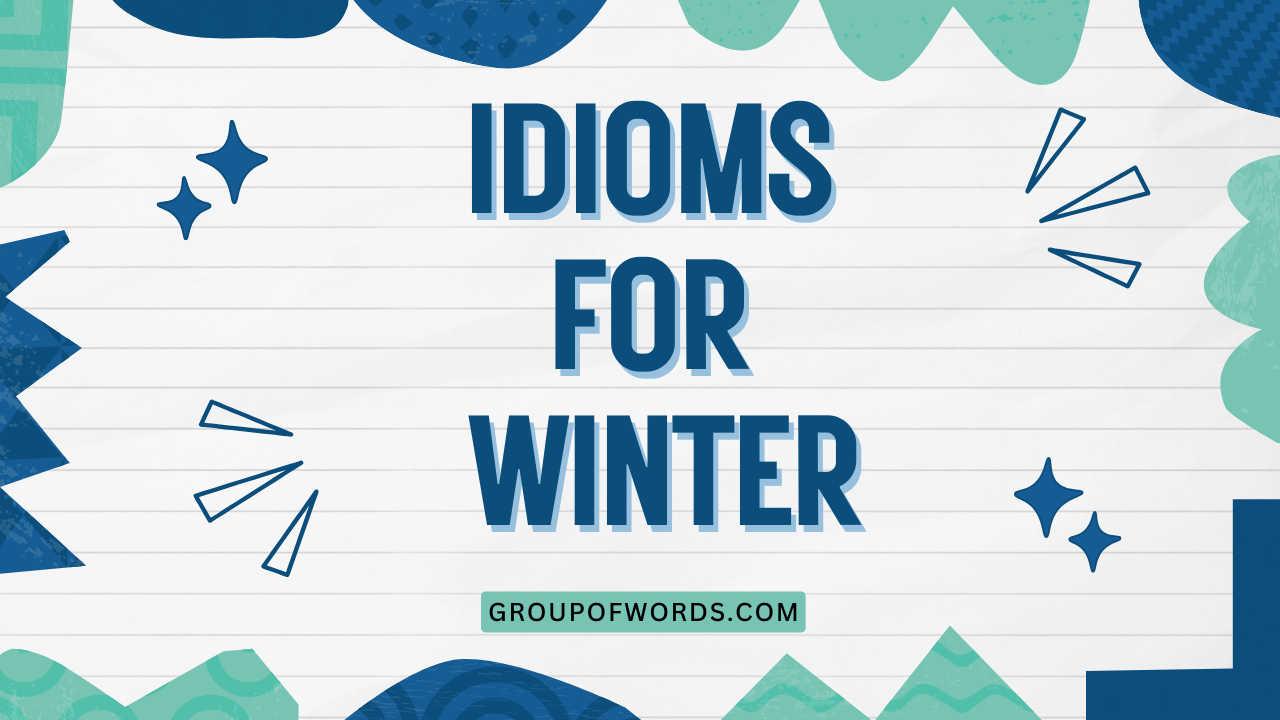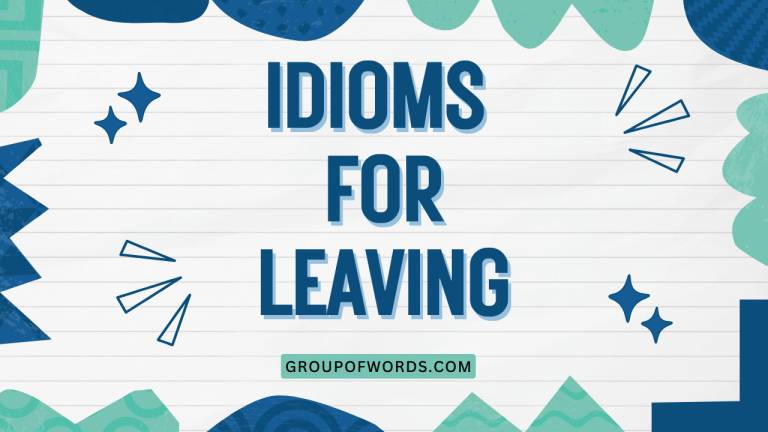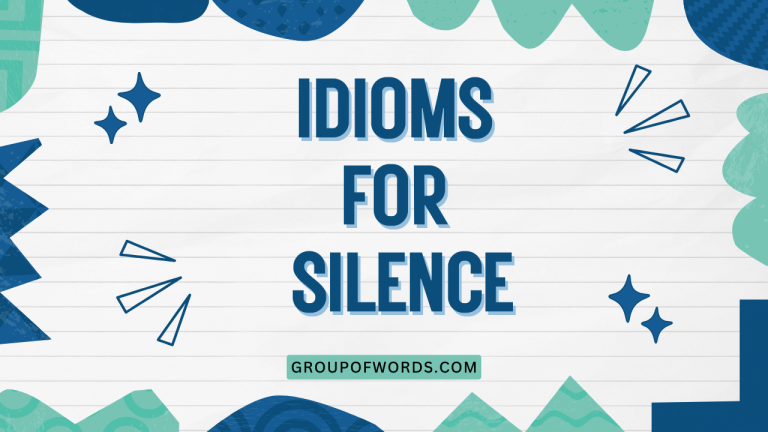Warming Up to Winter: Mastering Winter Idioms in English
Winter, with its frosty landscapes and cozy atmospheres, brings a unique flavor to our language. Understanding winter idioms not only enriches your vocabulary but also provides a deeper insight into the cultural nuances of English.
This article is designed to guide you through the fascinating world of winter idioms, exploring their meanings, origins, and usage. Whether you’re an English language learner or a native speaker looking to brush up your skills, this comprehensive guide will equip you with the knowledge and confidence to use winter idioms effectively in your everyday conversations and writing.
By the end of this article, you’ll be able to identify, interpret, and use a wide range of winter idioms, adding color and depth to your communication skills. Let’s embark on this linguistic journey and discover how winter idioms can add a touch of warmth to your language!
Table of Contents
- Introduction
- Defining Winter Idioms
- Structural Breakdown of Winter Idioms
- Types and Categories of Winter Idioms
- Examples of Winter Idioms
- Usage Rules for Winter Idioms
- Common Mistakes with Winter Idioms
- Practice Exercises
- Advanced Topics in Winter Idioms
- Frequently Asked Questions
- Conclusion
Defining Winter Idioms
An idiom is a phrase or expression whose meaning cannot be understood from the ordinary meanings of the words it contains. It’s a figurative language tool where the collective meaning of the words is different from the literal definition.
Winter idioms are a subset of these phrases that specifically draw upon imagery, themes, or experiences associated with the winter season.
Winter idioms often convey feelings, situations, or conditions that are reminiscent of winter. They enrich our language by adding color, depth, and cultural context to our communication.
Understanding these idioms is crucial for both native and non-native English speakers as they frequently appear in everyday conversation, literature, and media.
Winter idioms can be classified based on their thematic focus, such as those related to cold weather, snow, ice, the holiday season, or even the psychological effects of winter. They serve various functions, from describing physical conditions to expressing emotional states or commenting on social situations.
Structural Breakdown of Winter Idioms
The structure of winter idioms can vary widely, ranging from simple phrases to more complex sentences. However, they typically consist of a combination of nouns, verbs, adjectives, and adverbs that create a figurative meaning.
It’s important to recognize that the individual words within an idiom contribute to the overall meaning, but their literal definitions are not directly applicable.
Many winter idioms follow common grammatical patterns, such as subject-verb-object or adjective-noun combinations. However, the key to understanding them lies in recognizing the figurative relationship between the words and the intended meaning.
For example, the idiom “to break the ice” doesn’t literally involve breaking frozen water; instead, it means to initiate a conversation or ease tension in a social situation.
The context in which a winter idiom is used also plays a significant role in its interpretation. Understanding the surrounding words and the overall situation can help you decipher the intended meaning and avoid misinterpretations.
Pay attention to the tone, the speaker’s intention, and the cultural background to fully grasp the significance of the idiom.
Types and Categories of Winter Idioms
Winter idioms can be categorized based on their thematic focus, allowing for a more organized understanding of their meanings and usage. Here are some common categories:
Cold Weather Idioms
These idioms describe the physical sensations and effects of cold weather, such as shivering, freezing, or feeling numb. They often convey discomfort, hardship, or a sense of being overwhelmed by the cold.
Snow and Ice Idioms
These idioms draw upon the imagery of snow and ice to describe situations or conditions that are slippery, unstable, or difficult to navigate. They can also represent purity, stillness, or a sense of isolation.
Holiday Season Idioms
These idioms are associated with the festive atmosphere of the winter holidays, such as Christmas, Hanukkah, and New Year’s. They often convey feelings of joy, generosity, and togetherness, but can also touch on themes of stress or commercialism.
Seasonal Affective Disorder Idioms
These idioms reflect the psychological effects of winter, such as sadness, fatigue, or a lack of motivation. They often describe a feeling of being trapped, isolated, or overwhelmed by the darkness and cold.
Winter Activities Idioms
These idioms are related to activities commonly associated with winter, such as skiing, snowboarding, ice skating, or building snowmen. They can convey feelings of excitement, adventure, or the joy of embracing the winter season.
Examples of Winter Idioms
To solidify your understanding, let’s explore some examples of winter idioms, categorized by their thematic focus. Each example will include the idiom, its meaning, and a sentence illustrating its usage.
Cold Weather Idioms
These idioms often relate to the feeling of being cold, or the effects of cold weather on people and things.
Below is a table providing examples of cold weather idioms, their meanings, and example sentences to illustrate their usage in context.
| Idiom | Meaning | Example Sentence |
|---|---|---|
| Cold as ice | Emotionally unresponsive or unfriendly. | Her reaction to the news was as cold as ice, showing no emotion whatsoever. |
| Have a cold spell | To experience a period of bad luck or difficulty. | The company has been having a cold spell lately, with sales down and morale low. |
| Leave someone out in the cold | To ignore or exclude someone. | They left him out in the cold when they made the decision without consulting him. |
| Get cold feet | To become nervous or afraid at the last minute. | He got cold feet and backed out of the deal at the last moment. |
| In the dead of winter | The coldest and darkest part of winter. | In the dead of winter, the days are short and the nights are long. |
| A cold day in July | Something that will never happen. | “Will he ever apologize?” “That will happen on a cold day in July!” |
| A chill wind | An unwelcoming or hostile atmosphere. | A chill wind blew through the office when the boss announced budget cuts. |
| Cold comfort | Slight or inadequate consolation. | His apology was cold comfort after all the damage he had caused. |
| Out cold | Unconscious. | After the accident, he was out cold for several minutes. |
| Throw cold water on something | To discourage or dismiss an idea. | He threw cold water on my plans to start a new business. |
| Give someone the cold shoulder | To deliberately ignore someone. | She gave him the cold shoulder after their argument. |
| As cold as a witch’s heart | Extremely cold and unfeeling. | The villain in the story was as cold as a witch’s heart. |
| A cold fish | Someone who is unemotional and distant. | He’s a bit of a cold fish, never showing much emotion. |
| Catch a cold | To become ill with a common cold. | I think I’m starting to catch a cold; I have a sore throat. |
| Cold hands, warm heart | A saying that someone with cold hands is kind and loving. | She always says, “Cold hands, warm heart,” when people comment on her chilly hands. |
| Run hot and cold | To alternate between enthusiasm and disinterest. | He runs hot and cold on the project, one day excited, the next day indifferent. |
| Turn blue with cold | To become very cold, to the point of changing skin color. | The children turned blue with cold after playing in the snow for hours. |
| Frozen to the bone | Extremely cold, chilled all the way through. | After being outside in the blizzard, I was frozen to the bone. |
| A frosty reception | An unfriendly or unwelcoming greeting. | The new employee received a frosty reception from some of the older staff members. |
| Keep the wolf from the door | To have enough money to ward off starvation or extreme poverty. | The small salary was enough to keep the wolf from the door. |
Snow and Ice Idioms
These idioms use the imagery of snow and ice to describe various situations, often relating to difficulty, purity, or deception.
The following table provides examples of snow and ice related idioms, their meanings, and illustrative sentences to understand their application in different contexts.
| Idiom | Meaning | Example Sentence |
|---|---|---|
| Break the ice | To initiate a conversation or ease tension. | A funny joke can break the ice at a party. |
| Snowed under | To be overwhelmed with a large amount of work. | I’m completely snowed under with paperwork this week. |
| Tip of the iceberg | Only a small part of a larger problem. | The budget cuts are just the tip of the iceberg; more changes are coming. |
| On thin ice | In a precarious or risky situation. | He’s on thin ice with the boss after missing the deadline. |
| Pure as the driven snow | Completely innocent or virtuous. | She claims to be as pure as the driven snow, but I have my doubts. |
| Snow job | A deceptive or misleading story. | Don’t believe his excuses; he’s just giving you a snow job. |
| Snowball effect | A situation where something grows rapidly. | The small mistake had a snowball effect and led to bigger problems. |
| Walking on eggshells | Being very careful not to offend someone. | I feel like I’m walking on eggshells around him since he got promoted. |
| An avalanche of something | A sudden and overwhelming amount of something. | After the announcement, we received an avalanche of applications. |
| Put something on ice | To postpone or delay something. | We had to put the project on ice due to lack of funding. |
| Ice over | To become covered with ice. | The roads iced over overnight, making driving dangerous. |
| As alike as snowflakes | Not alike at all; unique. (ironic usage) | The two apartments seemed the same at first, but on closer inspection, they were as alike as snowflakes. |
| Ice queen | A woman who is perceived as cold and aloof. | She has a reputation for being an ice queen, but she’s actually very kind once you get to know her. |
| Skating on thin ice | Similar to “on thin ice,” but emphasizes the precariousness and potential for a sudden fall. | He was skating on thin ice when he started gossiping about his colleagues. |
| The snowball is rolling | A situation is gaining momentum and becoming increasingly difficult to stop. | Once the rumor started, the snowball began rolling, and it quickly spread throughout the office. |
| Clear as ice | Very clear and easy to understand. | The instructions were as clear as ice, so everyone knew what to do. |
| Frozen in time | Unchanged, as if preserved in ice. | The old house seemed frozen in time, with furniture and decorations from decades ago. |
| Glacial pace | Very slow pace. | The project is moving at a glacial pace, and we’re worried we won’t meet the deadline. |
| Cold as a well digger’s feet | Extremely cold. | It was as cold as a well digger’s feet outside. |
| Snow blindness | Temporary blindness caused by the glare of sunlight on snow or ice. | Without proper eye protection, hikers can suffer from snow blindness. |
Holiday Season Idioms
These idioms revolve around the festive atmosphere of winter holidays, such as Christmas and New Year’s.
Here’s a table showcasing holiday season idioms, their meanings, and example sentences to illustrate their use in context.
| Idiom | Meaning | Example Sentence |
|---|---|---|
| Deck the halls | To decorate a place for the holidays. | We’re going to deck the halls with lights and garlands this weekend. |
| Christmas comes but once a year | A reminder to enjoy special occasions. | “Let’s splurge on this expensive dinner; Christmas comes but once a year!” |
| Good things come in small packages | Valuable things can be found in unexpected places. | This small gift is amazing; good things really do come in small packages. |
| Like turkeys voting for Christmas | Unlikely to support something that is against one’s own interests. | Asking him to volunteer for the extra work is like turkeys voting for Christmas. |
| The more the merrier | The more people, the better. | “Can I bring a friend to the party?” “Of course, the more the merrier!” |
| Eat, drink, and be merry | Enjoy life to the fullest. | During the holidays, we should eat, drink, and be merry. |
| New Year, new me | A declaration of making personal changes at the start of the new year. | Every year, he says, “New Year, new me,” but he never follows through. |
| Ring in the New Year | To celebrate the start of the New Year. | We’re planning to ring in the New Year with a big party. |
| Christmas spirit | The feeling of joy, generosity, and goodwill associated with Christmas. | The Christmas spirit is alive and well in our community this year. |
| Bah Humbug! | An expression of disdain for Christmas. (From “A Christmas Carol”) | He’s such a grump; he just says “Bah Humbug!” to everything related to Christmas. |
| Trim the tree | To decorate a Christmas tree. | The family gathered to trim the tree with ornaments and lights. |
| Christmas Eve | The day before Christmas. | We always have a special dinner on Christmas Eve. |
| White Christmas | Christmas with snow on the ground. | Everyone is hoping for a white Christmas this year. |
| Stuff your face | To eat excessively, often during a holiday feast. | During Thanksgiving and Christmas, I tend to stuff my face with all the delicious food. |
| Holiday cheer | The joyful and festive mood associated with the holiday season. | The decorations and music really spread the holiday cheer. |
| Wrap up warm | To dress in warm clothing to protect against the cold. | Wrap up warm before you go outside in this freezing weather. |
| Secret Santa | A gift exchange game where participants anonymously give and receive gifts. | We’re doing Secret Santa at the office this year, and I’m excited to see who gets my gift. |
| Holiday blues | Feelings of sadness or depression during the holiday season. | Many people experience the holiday blues, especially if they’re far from family. |
| Give and take | Compromise and cooperation. | Marriage requires a lot of give and take. |
| Christmas card list | A list of people to send Christmas cards to. | I need to update my Christmas card list before sending out this year’s cards. |
Seasonal Affective Disorder Idioms
These idioms describe the feelings of sadness or depression associated with the winter months.
The table below presents idioms related to Seasonal Affective Disorder (SAD), their meanings, and example sentences.
| Idiom | Meaning | Example Sentence |
|---|---|---|
| Cabin fever | Restlessness and irritability from being confined indoors. | After a week of being snowed in, we started to get cabin fever. |
| Down in the dumps | Feeling sad or depressed. | She’s been down in the dumps ever since the weather turned cold. |
| Winter blues | A mild form of depression associated with winter. | Many people experience the winter blues due to the lack of sunlight. |
| Feeling blue | Feeling sad or depressed. | He’s been feeling blue since his vacation ended. |
| Dark days | A period of sadness or difficulty. | The company went through some dark days after the scandal broke. |
| Hibernate | To withdraw or become inactive. | I feel like I just want to hibernate all winter. |
| Under the weather | Feeling unwell or sick. | I’m feeling a bit under the weather today, so I’m staying home. |
| A gray day | A sad or depressing day. | It was a gray day, both in terms of the weather and my mood. |
| Cloud hanging over | A feeling of gloom or depression. | There’s a cloud hanging over the office since the layoffs were announced. |
| Long face | A sad or unhappy expression. | She had a long face after failing the exam. |
| Have the blahs | Feeling generally unwell or unmotivated. | I’ve been having the blahs all week, I can’t seem to get motivated. |
| Weary of winter | Tired and exhausted by the long winter months. | By February, many people are weary of winter and longing for spring. |
| Shut oneself away | To isolate oneself from others, often due to sadness or depression. | He shut himself away after the breakup and didn’t want to see anyone. |
| Stuck in a rut | Being in a monotonous and unfulfilling routine. | I feel like I’m stuck in a rut, doing the same things every day. |
| Heavy heart | Feeling sadness or grief. | She left with a heavy heart, knowing she might not see her family for a long time. |
| Lost its luster | Having lost its appeal or excitement. | The job has lost its luster after years of doing the same thing. |
| Doldrums | A state of inactivity or stagnation. | The economy is in the doldrums, with little sign of improvement. |
| Apathy | Lack of interest or enthusiasm. | There’s a growing sense of apathy among the voters. |
| Listless | Lacking energy and enthusiasm. | He felt listless and had no desire to do anything. |
| In low spirits | Feeling sad or depressed. | She’s been in low spirits since her grandmother passed away. |
Winter Activities Idioms
These idioms are associated with common winter activities, such as skiing or ice skating.
The table below provides examples of idioms related to winter activities, their meanings, and illustrative sentences.
| Idiom | Meaning | Example Sentence |
|---|---|---|
| Smooth sailing | Easy progress without difficulties. | After the initial challenges, the project was smooth sailing. |
| On the slopes | Skiing or snowboarding. | We’re planning to spend the weekend on the slopes. |
| Take a dive | To fall or decline suddenly. | The stock market took a dive after the news broke. |
| Glide through | To move smoothly and effortlessly. | She glided through the presentation with confidence. |
| Hit the ice | To go ice skating or play ice hockey. | Let’s hit the ice this weekend and go ice skating. |
| Go downhill | To decline or deteriorate. | After the new management took over, the company started to go downhill. |
| Skate around the issue | To avoid discussing a topic directly. | He kept skating around the issue and never gave a straight answer. |
| Cross-country | Across a country or region. | We’re planning a cross-country road trip this summer. |
| Build a snowman | To create a snowman using snow. | The kids were excited to build a snowman after the heavy snowfall. |
| Walk in a winter wonderland | To experience the beauty and magic of a snowy winter landscape. | Walking through the park after the snowfall was like walking in a winter wonderland. |
| Snow angel | An impression made in the snow by lying on one’s back and sweeping the arms up and down. | The children were making snow angels in the fresh snow. |
| Snow fort | A fort built out of snow. | The kids spent the afternoon building a snow fort in the backyard. |
| Sledding | The activity of riding on a sled or toboggan down a snow-covered hill. | We went sledding in the park and had a lot of fun. |
| Ice fishing | The sport of fishing through a hole in the ice. | My uncle loves to go ice fishing in the winter. |
| Snowmobile | A motorized vehicle designed for traveling over snow. | They went snowmobiling in the mountains. |
| Winter sports | Sports and activities that are played during the winter season. | Skiing and snowboarding are popular winter sports. |
| Après-ski | Social activities following a day of skiing. | We enjoyed après-ski at the lodge after a long day on the slopes. |
| Hot chocolate | A warm drink made with chocolate and milk or water. | After playing in the snow, we warmed up with hot chocolate. |
| Cozy up | To get comfortable and warm. | We cozied up by the fireplace with blankets and books. |
| Bundle up | To dress warmly in many layers of clothing. | Be sure to bundle up before going outside in the cold. |
Usage Rules for Winter Idioms
Using winter idioms correctly involves understanding their specific meanings and contexts. Here are some general rules to follow:
- Understand the meaning: Before using an idiom, make sure you fully understand its figurative meaning. Don’t rely on the literal definitions of the words.
- Consider the context: Use idioms in appropriate contexts. Some idioms are informal and should be avoided in formal writing or speech.
- Pay attention to tone: Idioms can convey different tones, such as humor, sarcasm, or seriousness. Choose idioms that match the intended tone of your message.
- Avoid overuse: While idioms can add color to your language, using too many can make your writing sound unnatural or contrived.
- Be aware of cultural differences: Some idioms may have different meanings or connotations in different cultures. Be mindful of your audience when using idioms.
It’s also crucial to be aware of the grammatical structure of idioms. While some idioms are fixed phrases, others can be modified to fit the grammatical context of the sentence.
For example, you can say “He got cold feet” or “She is getting cold feet,” depending on the tense you want to use.
Common Mistakes with Winter Idioms
One common mistake is interpreting idioms literally. For example, someone might misunderstand “break the ice” as physically breaking ice, rather than initiating a conversation.
Another mistake is using idioms in inappropriate contexts. For example, using an informal idiom in a formal presentation can sound unprofessional.
Here are some examples of common mistakes and their corrections:
| Incorrect | Correct | Explanation |
|---|---|---|
| He was literally snowed under with work. | He was snowed under with work. | “Snowed under” is figurative; avoid using “literally.” |
| She gave him the cold hand. | She gave him the cold shoulder. | The correct idiom is “cold shoulder,” not “cold hand.” |
| They are on thin water. | They are on thin ice. | The correct idiom is “thin ice,” not “thin water.” |
| He is feeling blue like the sky. | He is feeling blue. | The comparison “like the sky” is unnecessary and incorrect. |
| Let’s deck the rooms. | Let’s deck the halls. | The correct idiom is “deck the halls,” not “deck the rooms.” |
Practice Exercises
Test your knowledge of winter idioms with these practice exercises. Choose the correct idiom to complete each sentence.
- After being inside for days, the children started to experience __________.
- a) winter blues
- b) cabin fever
- c) cold feet
- The project is __________, so we need to work harder to meet the deadline.
- a) going downhill
- b) on thin ice
- c) snowed under
- He tried to __________ by avoiding the difficult questions.
- a) break the ice
- b) skate around the issue
- c) throw cold water
- She was __________ after the long day of skiing.
- a) feeling blue
- b) down in the dumps
- c) frozen to the bone
- The small success had a __________ and led to bigger achievements.
- a) snowball effect
- b) tip of the iceberg
- c) avalanche of something
- The company is trying to __________ with new holiday promotions.
- a) deck the halls
- b) ring in the new year
- c) catch a cold
- The news of the layoffs cast __________ over the entire department.
- a) a chill wind
- b) a cold day in July
- c) a cloud hanging over
- It was __________ outside; I could barely feel my fingers.
- a) as cold as ice
- b) cold comfort
- c) frozen in time
- After their argument, she decided to __________ him.
- a) give him the cold shoulder
- b) throw cold water on him
- c) catch a cold from him
- The politician’s promises turned out to be just a __________.
- a) snowball effect
- b) snow job
- c) tip of the iceberg
Answer Key:
- b) cabin fever
- a) going downhill
- b) skate around the issue
- c) frozen to the bone
- a) snowball effect
- b) ring in the new year
- c) a cloud hanging over
- a) as cold as ice
- a) give him the cold shoulder
- b) snow job
Advanced Topics in Winter Idioms
For advanced learners, it’s important to explore the origins and historical context of winter idioms. Many idioms have roots in old traditions, literature, or historical events.
Understanding these origins can provide a deeper appreciation for the richness and complexity of the English language.
Another advanced topic is the use of idioms in creative writing. Idioms can be powerful tools for creating vivid imagery, conveying emotions, and adding cultural depth to your writing.
However, it’s important to use them judiciously and avoid clichés.
Furthermore, exploring regional variations in idiom usage can be fascinating. Different regions of the English-speaking world may have their own unique winter idioms or variations of common idioms.
Being aware of these variations can help you communicate more effectively with people from different backgrounds.
Frequently Asked Questions
- What is the difference between an idiom and a metaphor?
An idiom is a phrase whose meaning cannot be understood from the literal definitions of the words it contains. A metaphor is a figure of speech that compares two unrelated things to highlight a similarity. While some idioms can be metaphorical, not all metaphors are idioms.
- How can I improve my understanding of idioms?
Read widely, listen to native speakers, and pay attention to the context in which idioms are used. Keep a notebook of new idioms and practice using them in your own writing and speech.
- Are idioms universal across all languages?
No, idioms are language-specific and often culturally bound. The same concept may be expressed using different idioms in different languages.
- Is it okay to use idioms in formal writing?
It depends on the idiom and the context. Some idioms are perfectly acceptable in formal writing, while others are too informal. When in doubt, err on the side of caution.
- How do I know when to use an idiom?
Use idioms when they add color, depth, or cultural context to your message. Avoid using them if they are likely to be misunderstood or if they sound unnatural in the given context.
- Can idioms change over time?
Yes, idioms can evolve over time, with new idioms emerging and old idioms falling out of use. The meanings of existing idioms can also shift gradually.
- What resources can I use to learn more about idioms?
There are many dictionaries, websites, and books dedicated to idioms. Some popular resources include
idioms. Some popular resources include the Oxford Dictionary of Idioms, the Cambridge International Dictionary of Idioms, and various online idiom dictionaries.
Conclusion
Winter idioms offer a fascinating glimpse into the cultural and linguistic richness of the English language. By understanding their meanings, origins, and usage, you can enhance your communication skills and add depth to your writing and speech.
Whether you’re describing the biting cold, the joy of the holiday season, or the psychological effects of winter, idioms provide a colorful and expressive way to convey your message.
Continue to explore and practice using winter idioms in your everyday conversations and writing. Embrace the opportunity to add a touch of warmth and personality to your language, and watch as your communication skills flourish.
As you become more comfortable with idioms, you’ll find yourself using them naturally and confidently, enriching your interactions and deepening your understanding of the English language.






